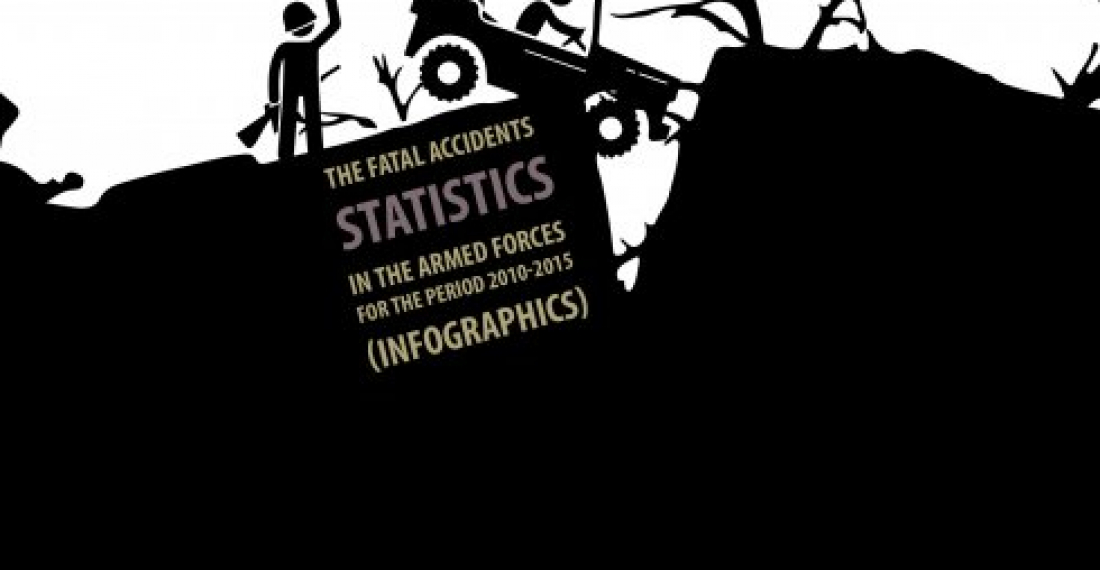Over a period of six years, from 2010 to 2015 the Armenian Armed Forces suffered a total of 206 fatal casualties, of which 67 were the result of fatal accidents, according to a report published by the Armenian NGO "Peace Dialogue".
"Peace Dialogue", whose work on increasing transparency within the Armenian defence and security sector has been praised in the past for its high quality and accuracy, says that there was a sharp increase in the number of fatal accidents in 2015 - with 20 deaths reported in non-combat situations/ accidents and 39 dead in combat situations as a result of cease fire violations.
Peace Dialogue says that whilst it is possible to explain the deaths in the combat situations, given the increase in tension in the Karabakh conflict zone in that year, it is not possible to explain why there was also such a large number of mortal accidents in the non-combat situations such as car accidents, accidents during training sessions and so on.
The figures released by "Peace Dialogue" do not include data for 2016 when figures for the number of deaths in combat situations is expected to be high due to the heavy fighting between Armenian and Azerbaijani forces in April. The figures released however represent combined total for deaths in both the army of the Republic of Armenia, as well as that of the self-declared Nagorno-Karabakh Republic.
In a comment to commonspace.eu, Edgar Khachatryan, spokesperson for the NGO "Peace Dialogue" clarified that the figures also exclude suicides, murders, health issues, safety procedure violations, and similar issues within the Armenian forces, adding that these will be dealt with in separate reports that will be published later. Edgar Khachatryan emphasised that the report is part of "Peace Dialogue" research on the right to life within the Armenian forces.
You can download infographics of the report in pdf form here
source: commonspace.eu







